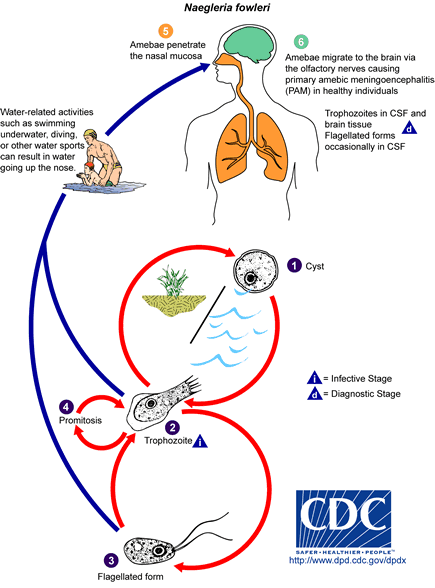Naegleria fowleri is a protozoan parasite , more specifically an amoeba. This lethal parasite is commonly referred to as the “brain eating amoeba” in mainstream media.
It is generally considered a rare cause of human infections in the US with a handful of cases (2-3) reported annually on average, almost universally fatal.
However, researchers in a new study estimate that the number of N. fowleri deaths in the US may be higher than the confirmed cases reported.
Lead author of the research letter published in the CDC journal, Emerging Infectious Diseases and infectious disease doctor in the CDC’s Waterborne Disease Prevention Branch, Dr Jennifer Cope joined me to discuss the study and some other topics concerning N. fowleri and primary amebic meningoencephalitis (PAM).
Read: Estimation of Undiagnosed Naegleria fowleri Primary Amebic Meningoencephalitis, United States
Podcast: Play in new window | Download
Subscribe: Apple Podcasts | RSS
Related:
- Outbreak News Radio: Naegleria fowleri and amoeba awareness: Personal stories and the great work from ‘Kyle Cares’ and ‘Swim Above Water’
- Miltefosine and the 4th Naegleria fowleri survivor: Talking with Profounda CEO, Todd MacLaughlan
- Amoeba awareness: Naegleria fowleri
- Amoeba awareness, part 2: Balamuthia
- Acanthamoeba: A rare and potentially blinding parasite
- Naegleria fowleri: An interview with Dr Jennifer Cope
- ‘Monsters Inside Me’ to feature the Kyle Lewis story
- Georgia boy, Leland Shoemake, hospitalized with Balamuthia amoeba infection

Intro music: “Rapture” by Ross Bugden




6 thoughts on “Naegleria fowleri: Study on death estimates, treatment success and the northward expansion of infections”